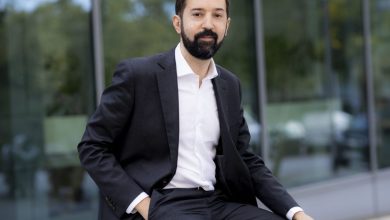Lufthansa, SWISS, and Camino Drive Web3 Innovation in the Travel Industry at Frankfurt Hackathon

- It has been proven during hackathon that web3 technologies have the capacity to completely revolutionize the travel sector.
- The use cases presented during hackathon revealed that these innovative methods are significantly more effective than conventional distribution channels.
Travel technology experts have developed innovative solutions that take advantage of blockchain and artificial intelligence at the web3 hackathon in Frankfurt, organized by Lufthansa Systems and Swiss International Air Lines (Swiss) in partnership with the Camino Network Foundation. The objective of these solutions was to make the travel industry more efficient, more profitable and lasting.
In the space of only forty-eight hours, teams of thirteen different travel and technology organizations have developed effective and ready-to-use solutions. The use cases presented during hackathon revealed that these innovative methods are significantly more effective than conventional distribution channels.
Real challenges, a real innovation
Instead of focusing on theoretical models, the event was mainly concerned about practical application. The objective is to study new methods of distribution of travel and travel products via the Camino network, which is based on Blockchain technology. The new payment methods, carbon compensation, access to expansion of sales markets and individualized group trips were among the many important themes that have been discussed.
Experts from the Lufthansa group (LHG) met to choose the three initiatives that showed the greatest potential:
- One solution was proposed by the Unimoni team in order to connect 300,000 non-Aaaa travel agents in India in the Camino network. This solution included local payment options and direct access to the content of the Lufthansa flight. By using this method, distribution costs are considerably reduced and new foreign markets are open. In addition, there is a huge possibility of development in other areas.
- The proposal that the Swiss and digital hangar team offered to improve trips-ID via the integration of web3 portfolios was impressive enough for the jury. This concept would allow the problem, exchange and administration of digital identities as well as real assets such as good and digital services.
- A group booking solution was created by the Hotelplan team. This solution allows passengers who start from various areas but go to the same destination to book together while paying individually. This makes the reservation process simpler, more opportune and more profitable than it was in the past.
In addition, Carbify was selected as “winning winners” by judges. Their answer has shown how the Camino network can contribute to the reduction of carbon dioxide emissions by offering complete traceability of compensatory efforts, to the precise geographical position of each planted tree.
Mickael Woelcke, project manager at Swiss and one of the main initiators of the hackathon, commented:
“Beyond the many innovative use cases developed during the hackathon, it was particularly impressive to see how the teams managed to integrate LHG flight content into their platforms in just two days. The commercial potential of this technology is promising – in particular with the integration of faster and more efficient partners and considerably reduced distribution costs.
Pablo Castillo, CEO of Chain4Travel and initiator of the Camino network, added:
“The hackathon clearly showed how the connections that took months can now be established in a few days. Compared to traditional distribution channels, new solutions are much more effective – with up to 98% savings, as demonstrated by the hotel industry and up to 50% of improved durability, as measured by CO₂ analysis of Carbify. ”
What is the next step?
It has been proven during hackathon that web3 technologies have the capacity to completely revolutionize the travel sector. The results have highlighted the fact that B2B partners can be integrated much faster, which can ultimately improve the marketing time and reduce distribution costs as well as carbon emissions associated with information technology.
There is now an evaluation by the Lufthansa group to see hackathon innovations that have the potential to be converted into tangible pilot applications. The company that launched Camino, Chain4Travel, will continue to provide assistance to the travel industry partners so that they can use web3 technology that is both relevant and practical.
The video of the event organized by Lufthansa Systems can be seen at
After the pitch session, an snapshot of the participation was taken.
Unimoni, the winning team, with another member of the jury, Tim Fischbach, who is the home sales market manager for Lufthansa Airlines (just in the photo).
- Jury:
- Ana Jaime Agramon (manager of digital products and computer portfolio, Swiss)
- Ignatz Hannak (Chief Executive Officer and Innovation of the Digital Ecosystem, Lufthansa Airlines)
- Jochen Götelmann (VP It Lufthansa Airlines and Operations It Lufthansa Group)
- Sebastian Riedle (Product Manager (CPO) and Product Managing Director, Digital Hangar)
- Tim Fischbach (Home market manager for tourist sales, Lufthansa Airlines)
The Camino network is a layer 1 blockchain that has been developed by thinking in particular of the tourism industry. In the travel industry, which is worth several billion dollars, Camino is an organization that reinvents the distribution landscape and finds solutions to significant difficulties in connectivity, payments and payment. It is exploited by a coalition of main participants in the industry. The future of Web3 Travel is motivated by Camino, which has received funding of more than ten million dollars and is supported by more than two hundred brands and more than 100 validators.




